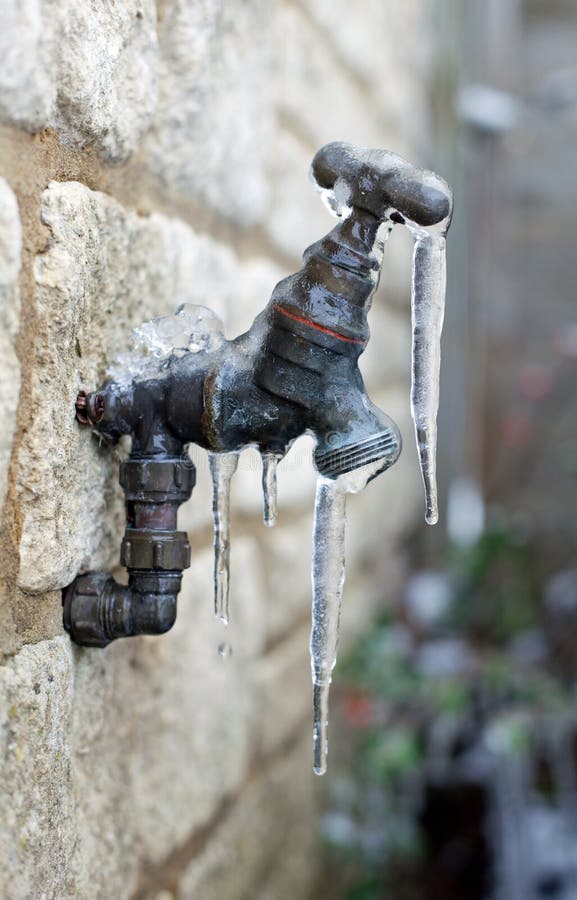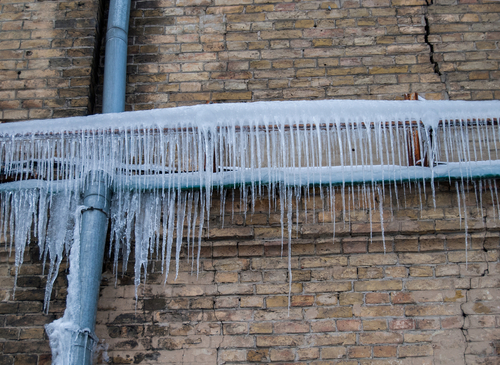Important Advice to Avoid Frozen Plumbing in Cold Weather: Professional Insights
Important Advice to Avoid Frozen Plumbing in Cold Weather: Professional Insights
Blog Article
Here in the next paragraphs you will find a lot of reliable content when it comes to Helpful Tips to Prevent Frozen Pipes this Winter.

Cold weather can damage your plumbing, especially by freezing pipes. Right here's exactly how to avoid it from occurring and what to do if it does.
Introduction
As temperatures drop, the risk of icy pipelines boosts, potentially resulting in costly repairs and water damages. Comprehending exactly how to prevent icy pipes is essential for homeowners in cool climates.
Avoidance Tips
Shielding susceptible pipelines
Wrap pipelines in insulation sleeves or utilize warmth tape to safeguard them from freezing temperature levels. Focus on pipelines in unheated or exterior locations of the home.
Heating methods
Maintain interior rooms sufficiently warmed, especially areas with pipes. Open up cabinet doors to enable cozy air to flow around pipes under sinks.
How to determine frozen pipelines
Seek decreased water flow from faucets, unusual odors or sounds from pipelines, and visible frost on subjected pipes.
Long-Term Solutions
Structural changes
Consider rerouting pipes away from exterior walls or unheated areas. Add added insulation to attic rooms, cellars, and crawl spaces.
Upgrading insulation
Invest in top quality insulation for pipelines, attics, and walls. Correct insulation assists preserve consistent temperature levels and lowers the danger of frozen pipelines.
Safeguarding Outdoor Pipes
Garden pipes and outdoor taps
Disconnect and drain pipes garden pipes before winter months. Install frost-proof faucets or cover outdoor faucets with shielded caps.
Understanding Icy Pipes
What triggers pipelines to ice up?
Pipes ice up when exposed to temperatures listed below 32 ° F (0 ° C) for expanded periods. As water inside the pipelines ices up, it increases, taxing the pipe walls and potentially triggering them to break.
Threats and problems
Icy pipelines can bring about water supply disruptions, residential property damages, and costly repair services. Burst pipes can flood homes and create considerable architectural damage.
Signs of Frozen Pipes
Recognizing frozen pipes early can prevent them from breaking.
What to Do If Your Pipes Freeze
Immediate activities to take
If you believe frozen pipes, keep faucets open to relieve pressure as the ice thaws. Make use of a hairdryer or towels soaked in hot water to thaw pipelines slowly.
Verdict
Stopping frozen pipelines requires aggressive steps and fast reactions. By recognizing the causes, indicators, and preventive measures, house owners can protect their plumbing throughout winter.
Helpful Tips to Prevent Frozen Pipes this Winter
UNDERSTANDING THE BASICS: WHY PIPES FREEZE AND WHY IT’S A PROBLEM
Water freezing inside pipes is common during the winter months, but understanding why pipes freeze, and the potential problems it can cause is crucial in preventing such incidents. This section will delve into the basics of why pipes freeze and the associated problems that may arise.
THE SCIENCE BEHIND FROZEN PIPES
When water reaches freezing temperatures, it undergoes a physical transformation and solidifies into ice. This expansion of water as it freezes is the primary reason pipes can burst. As the water inside the pipe freezes, it expands, creating immense pressure on the walls. If the pressure becomes too great, the pipe can crack or rupture, leading to leaks and water damage.
FACTORS THAT CONTRIBUTE TO PIPE FREEZING
Low Temperatures: Extremely cold weather, especially below freezing, increases the risk of pipes freezing. Uninsulated or Poorly Insulated Pipes: Pipes located in unheated areas, such as basements, crawl spaces, or attics, are more prone to freezing. Insufficient insulation or lack of insulation altogether exacerbates the problem. Exterior Wall Exposure: Pipes running along exterior walls are susceptible to freezing as they encounter colder temperatures outside. Lack of Heating or Temperature Regulation: Inadequate heating or inconsistent temperature control in your home can contribute to frozen pipes. PROBLEMS CAUSED BY FROZEN PIPES
- Pipe Bursting: As mentioned earlier, the expansion of water as it freezes can cause pipes to burst, resulting in significant water damage.
- Water Damage: When pipes burst, it can lead to flooding and water damage to your property, including walls, ceilings, flooring, and personal belongings.
- Structural Damage: Prolonged exposure to water from burst pipes can compromise the structural integrity of your home, leading to costly repairs.
- Mold and Mildew Growth: Excess moisture from water damage can create a favorable environment for mold and mildew growth, posing health risks to occupants.
- Disrupted Water Supply: Frozen pipes can also result in a complete or partial loss of water supply until the issue is resolved.
WHY CERTAIN PIPES ARE MORE PRONE TO FREEZING
- Location: Pipes located in unheated or poorly insulated areas, such as basements, crawl spaces, attics, or exterior walls, are at higher risk of freezing.
- Exterior Pipes: Outdoor pipes, such as those used for irrigation or exposed plumbing, are particularly vulnerable to freezing as they are directly exposed to the elements.
- Supply Lines: Pipes that carry water from the main water supply into your home, including the main water line, are critical to protect as freezing in these lines can affect your entire plumbing system.
- Underground Pipes: Pipes buried underground, such as those connected to sprinkler systems or outdoor faucets, can be susceptible to freezing if not properly insulated.
https://busybusy.com/blog/helpful-tips-to-prevent-frozen-pipes-this-winter/

I was made aware of that editorial on 6 Ways to Prevent Frozen Pipes through a buddy on a different domain. Are you aware of somebody who is in to the topic? Be sure share it. Thanks so much for going through it.
Click Here Report this page